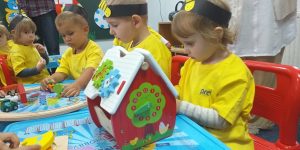Speech by Massimo Mina, Head of Operations section for Social Development, Civil Society and Cross Border Co-operation, Delegation of the European Union to Bosnia and Herzegovina at the closing ceremony of the Decade for Roma Inclusion Friday, 11 September 2015
Dear ladies and gentlemen, government representatives, colleagues from international organisations and members of civil society. I am glad to be able to address you today on behalf of the European Commission.
As you are aware, the European Commission has been closely linked to the Decade of Roma Inclusion for the period of its existence. The strategic goals of the Decade are the ones the Commission has set out as its priority areas of engagement, namely to focus on supporting full integration of Roma men, women and children in the areas of education, employment, health and housing. In addition, civil documentation is equally in our focus.
As the discussions moved towards the future of the Decade, we were open to be involved in the post-Decade period. Therefore, in the last few months, we have developed together with the Open Society Foundations and the Regional Cooperation Council, a new initiative which will continue the spirit of the Decade of Roma Inclusion 2005-2015 and will absorb its good practices and lessons learned, in particular when it related to involving civil society in decision making processes.
The new initiative is called Roma Integration 2020. It is designed as a regional cooperation mechanism with a view to strengthen the institutional structures, processes, policies and actions carried out at the national and local level.
The Commission has agreed with the Open Society Foundations to co-finance such initiative after the conclusion of the Decade of Roma Inclusion by focusing on the seven candidate and potential candidates. The initiative is set out for the period of three years, starting towards the end of 2015.
To be successful, it will be essential to include the Roma dimension specifically in the national sector policies for employment, health, education, infrastructure, civil registration, and in particular finance, while also focusing on discrimination, poverty and gender equality.
This initiative relies on the willingness of the participating governments to benefit from the support at the political level by taking into account the inclusion of Roma in the regular policy and budget cycles.
Besides the support to the governments, the initiative will ensure structured civil society participation at all levels including decision-making, monitoring, and evaluation. It is expected that governments commit to inclusive and participatory process and structures, with a substantial involvement of civil society, and this is clearly reflected in the post-Decade declaration.
With these assumptions in mind, at the end of three years the success of the initiative will be measured against the following goals:
Firstly: Each year, domestic budget will need to include priorities from the existing national sectorial policies on Roma.
Secondly: The measures from the existing national sectorial policies on Roma need to be integrated into mainstream policies that the national government prioritizes for economic and social advancement of the participating country.
Thirdly: Each government will need to demonstrate, through a set of indicators accepted by the public authorities, that the public administration and public service institutions implement the agreed measures and priorities.
Under Roma Integration 2020, a dedicated team will be deployed to support the governments in their efforts to translate the political commitments of integrating Roma further into actual practices. This team will be structurally placed under the Regional Cooperation Council. It will organize regional thematic workshops and national capacity building events, offering guidance and support to the relevant government officials in charge for policy making and budgetary allocations.
Under Roma Integration 2020, the programme team will continue to offer a platform for exchange between government officials, civil society and others in order to ensure a public debate on progress.
With this initiative we would like to strengthen the base and foundation of Roma integration at the national level. Only when we stop treating Roma as a separate group with separate needs in strategy plans not harmonized with regular policy making, will we be able to move towards real and full integration of Roma.
The success of Roma Integration 2020 will be closely monitored as it will very clearly demonstrate (or not) the genuine interest of governments to take measures to integrating Roma men, women and children. Our future financial support will be linked to the willingness of beneficiary countries to embark on substantial reforms.
Provided there is a genuine interest of the governments, the EU stands ready to continue to provide further political and financial support to the Western Balkans countries and Turkey on Roma. In particular:
• We will continue to support and co-organise with each enlargement country Roma seminars, with rigorous monitoring of the implementation of the operational conclusions jointly agreed upon.
• We will continue to closely follow up developments in enlargement countries in the Commission’s annual progress reports and to support enlargement countries to translate their political commitments for Roma inclusion into concrete and enduring results on the ground.
• In case of Montenegro and Serbia, we are also closely monitoring the progress in the framework of accession negotiations, mainly under chapters 23 Judiciary and fundamental rights and 19 Employment and social policy.
• As for the period 2014-2020, the EU is ready to continue supporting Roma integration with substantial EU financial contribution under the Instrument for Pre-Accession in all enlargement countries.
Let me conclude by saying that we are indeed looking forward to start with the implementation of the initiative soon.
Our colleagues from the Regional Cooperation Council and the Open Society Foundations would now like to add their contributions to the initiative.
Thank you for your attention.



